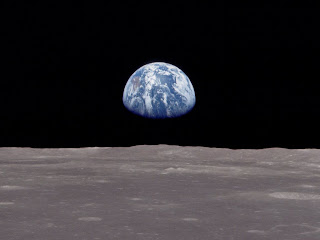I have never been good at satire. Whether it be reading or writing and I am not going to start now. It took much convincing to be sure that Animal Farm was based on actual historical events. And more convincing still on the fact that these so called events did not in fact involve sentient livestock. And even more convincing not to over compare the story with the current political platform of our beautiful country. All animals are equal, but some are more prominent than others.
Anyway, in my failed attempt at satire I thought I should contrast the plight of hippopotami with foreign tuck-shop owners. There is a place in Zululand where the view of the dawn horizon is bejeweled with a great necklace of rolling hills on the one side and plush plains that adorn its occupants with sheer awe ever single day of their existence.
Okay, I made up that last part. As I was saying, this is a tranquil place still nearly untouched by the scourge of urbanization. I mean, who needs running water anyway? It is situated near a wildlife reserve and the people of this place couldn't be any more in touch with Mother Nature. Fences are overrated anyways.
They couldn't be happier fetching water like the people of old. Nothing says you're alive more than the excruciating pain of a full 25 litre bucket over your head with the liquid rocking your neck in obtuse angles. Ah, yes, and the place they get to fetch the water makes one truly glad to be alive. The river/stream thing they get the water from (and do their laundry) is also home to the occasional man-eating crocodile and sometimes if one is lucky, you can spot a hippo some distance away.
Of course these waters are said to be "hippo infested". Maybe I shouldn't have put that in quotation marks as that would imply some sort of irony or a subliminal message that might imply that these humans are the invaders of these waters and I do not intend doing that. Dang it! Oh well, anyway, in their attempts at getting along with these majestic herbivores, the humans have decided to stay away from them.
Well, the few testosterone-intoxicated youths who have tested the standing-between-a-hippo-and-its-river theory didn't quite get the memo. God bless their inquisitive souls. This has undoubtedly dealt a great injury on the hippos' popularity polls in this community as of course these deaths are due to the hippos' vindictive and homicidal nature. Fowl creatures!
Now, if one of these mammals were to find themselves grazing a little too close to a paranoid homo sapiens, as is occasional, it would take some bad-mouthing from this individual to these other humans.
"They don't belong here. This is our land. You give them a little room to graze on and they'll kill you in your sleep."
"One of them looked me the wrong way just the other day. These things deserve to die!"
Peculiar creatures these ape men are. Now, these peoples gather around to hunt down and slaughter this animal on account of it being a (potential) danger the community.
As it turns out they find and loot, I mean, eat this animal in great merriment. Funny how so many people get their day off all at the same time. If I didn't know better I'd say they are lazy and unemployed people who are jealous of these creatures living their lives working hard to live for another day and these lazy asses find pleasure in free food, the meat which of course is at the expense of this innocent animal. But I know better.
And the people of this beautiful place live happily ever after...or until another hippopotamus makes a wrong turn. Anyway, I just went commando on this one (in more ways than one), so any references with the plight of certain peoples is purely coincidental. I just hope I'm not the next one to be stoned to death on account of a slightly weird accent







